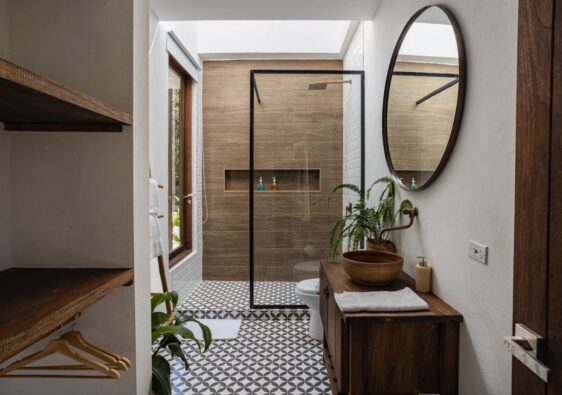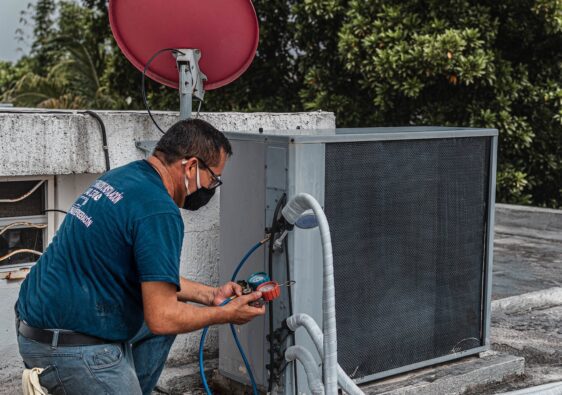Are you considering installing solar panels for your home?
The benefits of installing solar panels are obvious, and research shows that this has been a smart investment for many over the past decade. As more people learn about the benefits of solar energy, however, more questions arise.
One of the most common is the cost of solar panels. People tend to associate solar energy with saving money, but they also know it’s an upfront, expensive investment. So exactly how much does it cost to install solar panels? And what factors determine the cost?
To learn more, simply read below to find out.
Type of Installation
The type of installation will largely determine the cost of solar panels. Different installation factors include the extent of the rooftop, the structural condition of the building, the solar orientation, and the complexity of the system.
For a rooftop installation, the cost will be higher if there are obstructions or if the roof is difficult to reach. For a ground-level installation, the cost will depend on the scale of the property, the terrain, and the amount of excavation required.
Site analysis and design also factor into the installation cost. A more complex system will come with a higher price tag because the electronic components and labor required may be more extensive. In addition, the costs of permits and regulatory compliance should also be considered. Therefore, the type of installation can significantly affect the cost of solar panels.
Type of Equipment
The type of equipment used in the installation of solar panels can have a significant impact on the cost. The type of solar panel needed will vary depending on the size of the roof, available sunlight, and other factors that may affect the installation.
In addition, the number of panels and components needed, such as inverters and mounting hardware, will also affect cost. If a homeowner chooses to have a system with an energy storage component, this will significantly increase the cost due to the additional installation and components involved.
Furthermore, the quality of the components will also play a part in determining the cost. Opting for premium quality components will increase the cost but will provide long-term savings due to their higher efficiency and reliability.
Roof Type
Roof Type is an important factor when determining the cost of solar panels for your home. When solar array manufacturers build the exact right size and shape of the panels to fit the roof line, they are ultimately creating custom panels that are more expensive than “off the shelf” options.
Flat roofs are typically easier to install solar panels than sloped roofs, resulting in lower costs. Additionally, traditional composite shingle roofs are more cost-effective than more complex metal sheet roofs. The higher complexity of the roof type also increases labor costs which directly correlate to solar panel costs.
Shading & Weather
Shading and weather conditions can have a big impact on the cost of solar panels. Solar panels need direct sunlight to generate electricity, so shading from large trees, buildings, or other sources of shade can reduce electricity production.
Cold days with fewer hours of daylight can also decrease the amount of solar-generated electricity. If a property is in an area with cooler climates, it typically needs more panels to generate enough electricity to offset costs. The sunnier and hotter the climate, the more effective the solar panel systems are, lowering costs.
Cost Of Licenses
The cost of solar panel licenses varies depending on the region and country. Depending on the local and federal government regulations, the cost of licenses can range anywhere from a few hundred dollars to thousands of dollars.
In addition, the cost of licenses will depend on the system’s size, the project’s complexity, and the unique requirements of the particular area in which the system is being installed.
Finally, the type of license that is required also determines the cost of the license, as some are less or more complex and expensive than others. All of these factors must be considered when determining the cost of licenses for installing solar panels.
Tracking Systems
The cost of tracking solar panels varies widely depending on several factors, including the type of technology used, the size of the system, the configuration, the expected maintenance and lifespan, and the installation costs.
Tracking systems that use direct current (DC) technology are usually more expensive due to the system’s complexity. Similarly, tracking systems that require more panels (such as dual-axis tracking systems) are typically more costly than single-axis tracking systems due to their ability to access different sunlight angles.
Tax Incentives
Tax incentives have greatly influenced the cost of solar panels. Federal, state, and local incentives can significantly reduce the financial burden of installing and maintaining solar panels, making solar energy more affordable for homeowners.
Federal tax credits, accelerated depreciation benefits, and state renewable portfolio standards are all incentives that are taken into account when determining the cost of solar panels.
When combined, these incentives can offset the costs of solar installation and provide the homeowner with a hefty return on investment. Additionally, local utility rebates often provide a monetary bonus that can be used towards more solar equipment or applied to the electric bill.
Roof Angle
The roof angle of a structure has a big effect on the cost of installing roof solar panels. A roof with a steep angle will require more labor to mount the panels and longer racking and cabling systems to ensure there is no slippage or sagging during high winds.
The steeper angles require a stronger mounting system, which increases the installation cost. Additionally, the roof angle affects the amount of direct sunlight that is captured by the panels, meaning it’s necessary to use more panels when the roof is steep.
The additional panels’ cost adds to the installation’s overall cost. As a result, the more shallow the angle of the roof, the more cost-efficient the installation of solar panels will be. There are also solar panel financing options that you can take advantage to start the solar panel installation.
Explore the Cost of Solar Panels
It is evident that various factors, such as the type of solar shingles or solar panels purchased, the size of the installation, and the location of the property, are just some of the many variables that will determine the overall cost of solar panels.
To ensure solar energy is right for your home, speak with a trusted and experienced solar energy consultant.
Did you find this article informative? Check out the rest of our blog for more!



